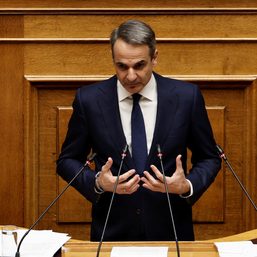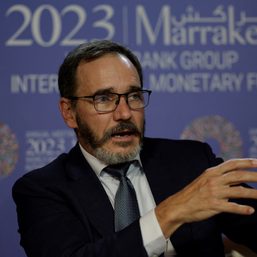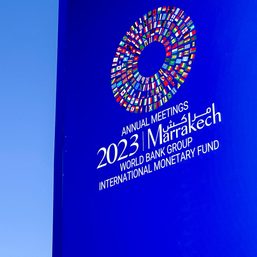SUMMARY
This is AI generated summarization, which may have errors. For context, always refer to the full article.

The Greek economy should grow by 3.3% this year and 5.4% in 2022, fueled by European recovery fund investment, pent-up consumer demand, and an expected return of tourism, International Monetary Fund (IMF) officials said on Wednesday, June 2.
The forecasts, issued following a regular IMF staff visit to Greece, represent a slight cut in the fund’s previous 3.8% forecast for 2021 issued in April but an increase in the previous 5% forecast for next year.
The estimates, which follow an 8.2% contraction in Greek gross domestic product (GDP) in 2020, are slightly below Greece’s own forecasts for 3.6% growth this year and 6.2% growth in 2022.
The IMF officials praised Greece’s “swift and proactive” response to the COVID-19 crisis, which saw the government spend 24 billion euros last year and earmark a further 11.6 billion euros this year to support businesses and jobs hit by the pandemic.
But it said the outlook was clouded by uncertainties and much would depend on factors including how the pandemic developed and its impact on banks’ bad debt holdings as well as how successfully EU funds were absorbed.
Greece, which emerged from its third bailout in a decade in 2018, is due to receive 32 billion euros in grants and cheap loans from the EU’s recovery fund. It expects a steady resumption of its vital tourism industry with arrivals this year at 50% above the levels in 2020 when demand collapsed.
The IMF mission, which called for continuing efforts for structural reforms to labor markets and tax, said the government’s priority should be on measures to support the economy and jobs.
It offered “qualified support” for continuing a looser fiscal stance next year, saying “medium-term fiscal sustainability objectives should not be achieved at the expense of growth.”
It said Greece’s public debt, at over 200% of GDP, was sustainable in the medium term, provided the government gradually returned to a primary budget surplus and interest rates remained favorable. – Rappler.com
Add a comment
How does this make you feel?
![[WATCH] John Kerry: You can’t solve climate crisis without addressing ocean’s challenges](https://www.rappler.com/tachyon/2023/12/cop28-united-states-john-kerry-december-2-2023-reuters-001.jpg?resize=257%2C257&crop_strategy=attention)









There are no comments yet. Add your comment to start the conversation.